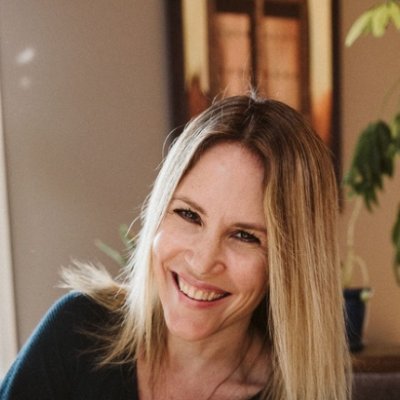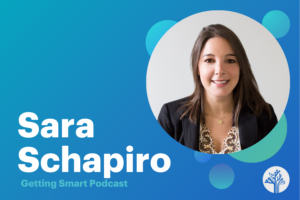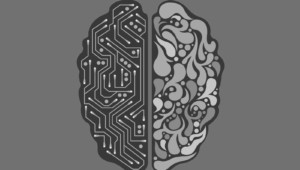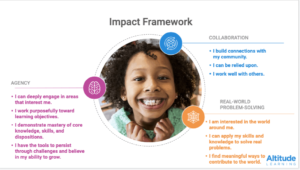New, Different and Adaptive: The New Keys to Education and Employability

The business world and schools are undeniably connected, working in tandem to prepare students for the world of college and career.
We are living in an age of unprecedented shifts in our economy. One-third of Americans are expected to make their living through freelancing, or project-based work, by 2020.
Many jobs are becoming increasingly automated, and people who do land jobs in large businesses are often working collaboratively and on projects. As the economy and the business world continues to adapt to the shifts, resilient, adaptive workers and creative entrepreneurs are rising to the top.
We are also living in a time when school networks, districts, charters and the schools themselves are redesigning and redefining their vision and structures to be more personalized, blended and project-based, and are also determining how to best prepare young people for this changing economy. Businesses are doing the same, by redesigning the workplace and reinventing structures to best support the business and the people who work for them.
Schools are thinking about the intersection of personalized and project-based work as well as blended and online learning, and so are businesses as they work to ensure that teams can collaborate across time zones and in projects. Schools and businesses are also looking to offer both in-person and online tools for their students and employees’ ongoing professional learning.
 One company, Goldman Sachs, caught my attention recently with their podcast and report on how the public and private sector can better work to support individuals displaced by technological change.
One company, Goldman Sachs, caught my attention recently with their podcast and report on how the public and private sector can better work to support individuals displaced by technological change.
In the podcast, Jake Siewert, global head of Corporate Communication at Goldman Sachs, interviewed colleagues Steve Strongin and Sandra Lawson. Strongin is head of Global Investment Research and Lawson is director of the Global Markets Institute. The three discussed the economy, technological change and what this means for education.
5 Ways the Nature of Work and Learning is Changing
1. We need SEL + STEM.
Strongin and Lawson explain that the future of education is not just about STEM. “STEM doesn’t future proof anyone. People need to learn to be adaptable…and know how to work in groups and how to be creative…This is about changing the ways things are taught and making things more project and team oriented.”
The recently created National Commission on Social, Emotional and Academic Development by the Aspen Institute is an indication of the fact that educators and businesses are coming together to focus on social and emotional learning in combination with academics.
Lawson says, “Studying STEM is important but it doesn’t future- proof anybody because those professions will evolve just as rapidly, if not more rapidly, than the rest of the employment and the labor force. And so, what people really need to learn is how to be adaptable, how to learn new skills later in life, how to work in groups, how to be creative. Because the process of working is much more about managing and organizing teams of people to put things together, than a single person working on a single project in isolation. And so, in a lot of ways, this is about changing the way things are taught rather than the actual subjects themselves, making them more interactive, more real-life feeling, and more team-oriented. So that people have these adaptability skills and they’re able twenty years on to go back and learn something else.”
2. We need creativity.
The podcast also focuses on a report in which the authors describe “a greater educational focus on social skills, creativity and judgment, not only STEM subjects” and expanded incentives for corporate job training, among other regulations. Sir Ken Robinson would also agree.
3. We need to be adaptable and resilient.
On the roles of learning resiliency and change, Strongin said, “What we need is people who can adapt to today’s needs.” This is a running theme in their podcast and also is something we have found through our GenDIY Series, which chronicles the lives of young people as they make their way through college and career. Strongin said, “There’s a notion of resiliency that sits at the base of education, not technical skills. Because no matter how you train, no matter what field you train in, probably within ten years, you’re going to need a new set of skills and a new set of training to do even the same job.”
4. Jobs will not be about “doing” things, they will be about managing them.
Automation and machines will do the “doing.” (See our #AskAboutAI series for much more on this topic). What will humans be hired to do? They will be managing the machines. If it’s new, different and not automated, you do need people. If it’s novel, we need people who can adapt to the novelty, says Lawson.
5. We need deeper learning outcomes.
Jim Postl, former CEO of Penzoil-Quaker State, recently wrote, “We know that career and technical education (CTE) programs can often be the best way for students to receive the training that jobs require. Meshing wonderfully with CTE education is a research-supported model called deeper learning. Deeper learning stresses the executive functioning skills that today’s employers value most. These include skills such as collaborating well, thinking critically, incorporating feedback into work product, problem-solving, communicating effectively and knowing and mastering core academic content.” As the business world continues to organize work into teams and projects, young people who have deep experience and skill sets in deeper learning outcomes such as communication and collaboration will rise to the top.
New economic realities are a wake-up call to educators, businesses and those who support schools to ensure that what happens in schools is preparing students for what happens after. For specific recommendations to support policies and business involvement in the education and learning sector, see more from Goldman Sachs as well as Ready Nation, an organization devoted to advocating for 21st-century skill development, the Partnership for 21st Century Learning and our recent publication Preparing Students for a Project-Based World. Share your ideas with us using #projectbased and tagging @Getting_Smart.
This blog is part of “It’s a Project-Based World” series. To learn more about this series and to learn ways that you can contribute, click the icon below to go to the Project-Based World page.

Join in the conversation at #projectbased.
For more, see:
- 13 Tips for Students Getting Started with Project-Based Learning
- It’s a Project-Based World. Let’s Prepare Students for It.
- Getting Smart Podcast | It’s a Project-Based World and a PBL Movement
Stay in-the-know with all things EdTech and innovations in learning by signing up to receive the weekly Smart Update.






Arne Erisoty
Awesome article Bonnie... Thanks for the positive CTE plug.
Our school stresses Level 3/4 depth of knowledge (DOK) for the students.
Arne, Utah
CTE instructor
Fremont High School
Plain City, Utah